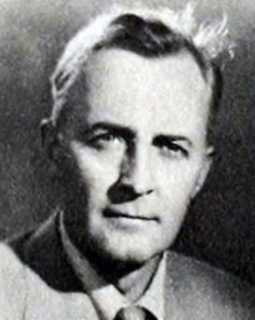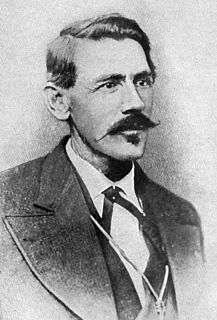A Quote by Watchman Nee
People who are lazy, careless, doubtful-minded or arrogant need not expect God to reveal His secret or covenant to them.
Related Quotes
No matter what happens, it will, then, always remain secret: only I know exactly the weight and force of the covenants I have made -- I and the Lord with whom I have made them -- unless I choose to reveal them. If I do not, then they are secret and sacred no matter what others may say or do. Anyone who would reveal these things has not understood them, and therefore that person has not given them away. You cannot reveal what you do not know!
In the new covenant, God doesn't want us to be blessed when we obey the law and cursed when we fail. Doesn't such a system sound awfully similar to the old covenant? Grace is the undeserved, unmerited and unearned favor of God - the moment you try to merit the free favors of God, His grace is nullified.
God Most High has said, "Is the reward of virtue aught save virtue?" . . . Know, O man, that the covenant of servanthood is incumbent upon you, and that the covenant of Lordship is incumbent upon His magnanimity, as He Most High has said, ". . . and fulfill your covenant, I shall fulfill My covenant."
That we need only to recognize GOD intimately present with us, to address ourselves to Him every moment, that we may beg His assistance for knowing His will in things doubtful, and for rightly performing those which we plainly see He requires of us, offering them to Him before we do them, and giving Him thanks when we have done.
The voice of God is heard from heaven, declaring the day and hour of Jesus' coming, and delivering the everlasting covenant to His people. Like peals of loudest thunder His words roll through the earth. The Israel of God stand listening, with their eyes fixed upward. Their countenances are lighted up with His glory, and shine as did the face of Moses when he came down from Sinai. The wicked cannot look upon them. And when the blessing is pronounced on those who have honored God by keeping His Sabbath holy, there is a mighty shout of victory.
In the wilderness, God's covenant people struggled with a choice between feeding their bellies and nourishing their souls. God provided manna-a breadlike food that fell to the ground during the night-to sustain the wandering Israelites and to teach them how to value His Word more than physical fulfillment.
I have a sense that God is unfair and preferentially punishes his weak, his dumb, his fat, his lazy. I believe he takes more pleasure in his perfect creatures, and cheers them on like a brainless dad as they run roughshod over the rest of us. He gives us a need for love, and no way to get any. He gives us a desire to be liked, and personal attributes that make us utterly unlikable. Having placed his flawed and needy children in a world of exacting specifications, he deducts the difference between what we have and what we need from our hearts and our self-esteem and our mental health.


































